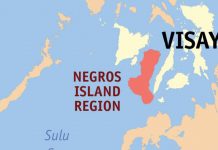BACOLOD City – Mayor Evelio Leonardia has formed an oversight committee that will study the trends and updates of the local conditions during the extended enhanced community quarantine (ECQ) here from May 1 to 15.
The creation of the body is provided in Executive Order (EO) 34 issued by Leonardia on Thursday afternoon to formalize the joint decision of the city officials to further extend the ECQ as a stringent measure to prevent the transmission of the coronavirus disease 2019 (COVID-19).
The oversight committee, which will be composed of five members, including the chairman, will also recommend to the mayor “whatever necessary measures that may be appropriately undertaken on any obtaining events, all in coordination with the city’s Inter-Agency Task Force.”
Leonardia signed the EO after the national IATF for the Management of Emerging Infectious Diseases approved the request of city officials to extend the ECQ.
This is the second time the ECQ has been extended in Bacolod after the initial period of March 30 to April 14 was also prolonged until April 30.
“The extension of the imposed ECQ is necessary so that the city shall not lose its battle against Covid-19 and to gain more momentum in terms of controlling the spread of the virus,” he said in his latest directive.
“This novel COVID-19 virus is undeniably deadly and unprecedented in its harm to public health, such that its local transmission is still a grave and present threat that cannot be underestimated. The city should be consistently vigilant and must, therefore, continue to institute stringent measures,” Leonardia added.
In an earlier statement, Leonardia said that the city officials presented their unanimous position to the national government that it would be premature to lift the ECQ in Bacolod by April 30 since cases of positive local transmissions are just beginning to emerge and coming to the notice of health authorities.
Leonardia said that while Bacolod is glad after being classified by the IATF as a low-risk area, such is “not an absolute guarantee that its residents are now truly safe and secure.”
“Better to err on the side of caution than to live under a false sense of security and suffer for it eventually,” he added. (PNA)



